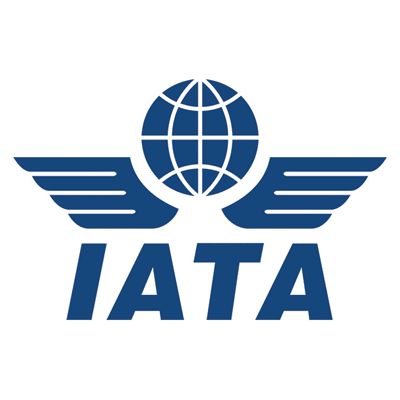IATA discusses agenda for the development of Jordanian aviation
- Like
- Digg
- Del
- Tumblr
- VKontakte
- Buffer
- Love This
- Odnoklassniki
- Meneame
- Blogger
- Amazon
- Yahoo Mail
- Gmail
- AOL
- Newsvine
- HackerNews
- Evernote
- MySpace
- Mail.ru
- Viadeo
- Line
- Comments
- Yummly
- SMS
- Viber
- Telegram
- Subscribe
- Skype
- Facebook Messenger
- Kakao
- LiveJournal
- Yammer
- Edgar
- Fintel
- Mix
- Instapaper
- Copy Link
Posted: 26 June 2012 | IATA | No comments yet
IATA has met with the Government of Jordan to discuss the further development of safe, secure and efficient aviation links…


The International Air Transport Association (IATA), met with the Government of Jordan to discuss the further development of safe, secure and efficient aviation links.
HRH Prince Feisal Bin Al-Hussein and Minister of Transport H.E. Dr. Hashem Al Masaeed received Tony Tyler, IATA’s Director General and CEO. Tyler presented the Prince with a report on the benefits of aviation in Jordan which shows that aviation supports some JOD 994 million in economic activity and 79,300 jobs (including aviation-supported tourism).
“I thank HRH Prince Feisal and the government for their continued support for IATA’s activities. Jordan is among the world’s leading aviation nations and King Abdullah’s vision for aviation will ensure that our industry continues to contribute to developing the economy and providing high-value jobs,” said Tyler.
Tyler’s visit to Amman occurs at a time of great challenge to the air transport industry. “Globally we are expecting airlines to make an aggregate profit of $3.0 billion in 2012. On $631 billion in revenues, that’s a razor-thin margin of just 0.5%. The Middle East will contribute $0.4 billion to that profit. At this level of profitability, the industry is fragile and the challenges are big. The European sovereign debt crisis continues. And oil prices, despite some recent relief, are expected to average $110 per barrel for the year. That will account for a third of airline costs—more than double the 14% it represented in 2003,” said Tyler.
During the discussion, the Prince reaffirmed his support for the IATA Office in Amman, and the Association’s activities. The substance of the talks included:
Safety: IATA is continuing to work with governments in the region for wider acceptance of the IATA Operational Safety Audit (IOSA) and IATA Safety Audit for Ground Operations (ISAGO). ISAGO is already supported by the Jordanian government, while the Prince indicated his support for IOSA and its potential to improve aviation safety across the Middle East North Africa (MENA) region.
Security: Security is being improved through a cooperative approach among industry and governments. Specific programs include the Checkpoint of the Future for an enhanced passenger security experience, and Secure Freight, which protects cargo upstream, raising security levels and preventing bottlenecks at airports. Tyler encouraged Jordan to join the 17 other governments around the world which have endorsed the principles of the Checkpoint.
Environment: Airlines have committed to tough targets for carbon emissions reductions, including a 50% net reduction in CO2 by 2050 compared to 2005 levels. However, the imposition of the European Union’s Emissions Trading Scheme has created a political impasse. Tyler repeated his concern that “Europe’s unilateral and extra-territorial scheme is not a stepping stone to a global agreement, but an obstacle to environmental progress.” He encouraged the Jordanian government to continue to support a global agreement through the International Civil Aviation Organization.
Efficiency: Improving efficiency remains a key industry objective, both to reduce costs and improve passenger service. Tyler thanked the government for reducing the inflation adjustment charge at Amman’s Queen Alia International Airport (QAIA) and congratulated Royal Jordanian and QAIA for becoming the second national carrier/airport pair in the region to implement the IATA Fast Travel suite, which gives passengers more convenience and cuts costs. Much groundwork has also been completed to enable e-freight implementation, which could cut shipping times by 24 hours. E-freight cannot become a reality however, until the legislation to operate without paper is ratified.
While in Jordan, Tyler also attended an official reception marking the conclusion of Dr. Majdi Sabri’s 11 years as IATA Regional Vice President (RVP) for the MENA region, and to welcome Hussein Dabbas as IATA’s new RVP for the region. Dabbas joins IATA after a 30-year career in aviation including serving as CEO of Royal Jordanian from 2009.
“I want to pay tribute to Majdi’s achievements in building such a strong team in Amman during that has helped the industry through a period of immense challenges and changes. I welcome Hussein, who will undoubtedly build on those achievements and further increase the effectiveness of our support to our airline members,” said Tyler.
The Amman office was established in 1991. It is IATA’s regional office for the MENA region which is home to 28 of IATA’s more than 240 member airlines. Additionally, Amman is a hub for IATA’s financial services covering 66 countries across the Middle East and all of Africa. In 2011, the office securely processed and settled over $20 billion. A total of 80 staff members, 85% of whom are Jordanian, are employed by IATA in Amman.













